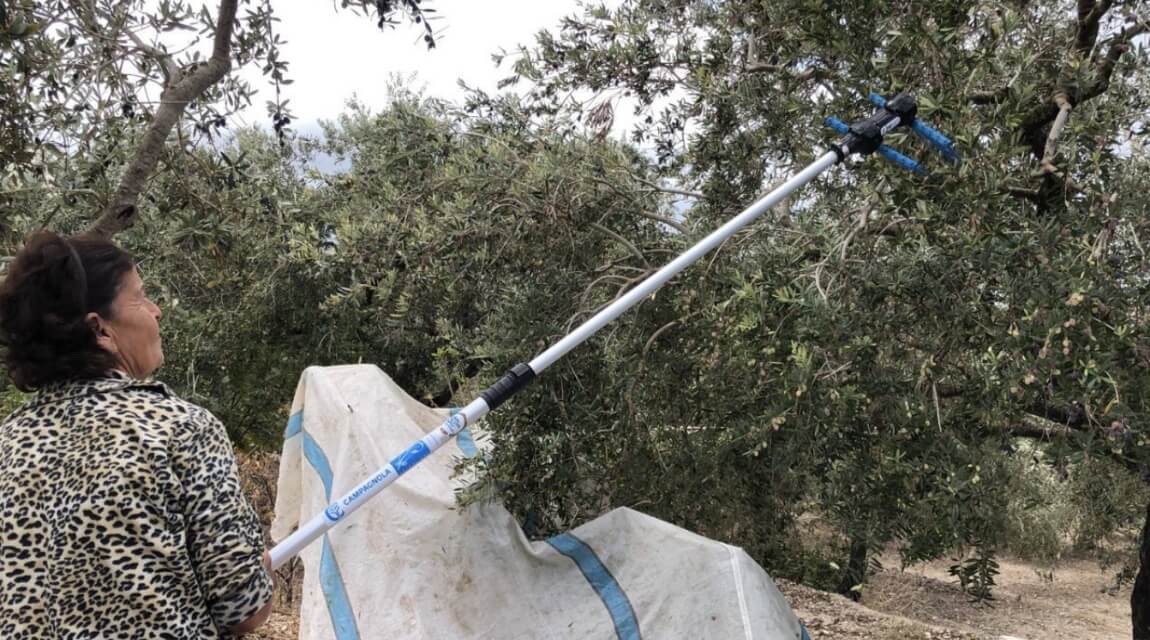USAID Supports Olive Farmers In Tanbourit
“USAID is responding to essential needs and contributing to the local economy by distributing mechanical harvesting machines to olive farmers.”
Agriculture is an essential livelihood of most rural families. The olive harvesting machines provided by USAID through the Community Support Program (CSP) will open new opportunities for the cooperative and create jobs for our children, preventing urban migration. We want our children to be attached to their land,” says Maroun Moussa, a 60-year-old member of the Cooperative of Olive Farmers in the southern Lebanese village of Tanbourit.
Moussa still remembers the olive season when his three children were young. At the time, he was making a meager salary serving in the Lebanese Army and was stationed in Beirut, more than 50 kilometers from his wife and kids. The harvest helped him earn enough money to pay for the kids’ school and other expenses.
More importantly, it was a family activity. “We were raised here. We educated our children to stay on this land. We don’t want to leave,” Moussa says. When Moussa’s older son, Fadi, turned 15, he began operating the tractor and harvesting on his own.
Moussa’s story is a familiar one in Tanbourit, a village with about 650 permanent residents, whose average income is approximately $8,000 a year. The livelihoods of about 70 percent of the residents depend on the production of the area’s renowned olive oil.
But in recent years, production costs for the oil have been on the rise, eating into the farmers’ earnings. Most of that cost — between 30 to 50 percent — goes to the harvesting operation, which requires extensive manpower due to the scarcity of mechanical harvesting machines. This scarcity has also created tensions among residents as they have had to compete to use the few existing machines. In addition, the worsening economic situation is forcing some residents to leave the village to find work elsewhere.
To improve the efficiency of producing oil and decreasing costs, CSP provided the olive cooperative (COOP) with eight mechanical harvesting machines worth $12,000 to serve approximately 54 households, a total of about 270 beneficiaries.
This past year marked the first season the COOP used the harvesting machines provided by CSP. According to Moussa, the machines helped the farmers reduce the cost of harvesting by up to 60 percent per ton of olives.
By helping the farmers harvest more efficiently, the new harvesters will also help improve the oil’s quality since olives should be pressed within two days of being harvested. Using the increased profits generated by the harvesting machines, the COOP plans to invest in a new olive press for the village. This, in turn, will help the farmers sell their oil earlier in the season, beating their competitors to the market and boosting their profits.
A more bountiful harvest means the village will have a greater number of zeitoun jarjer — Arabic for “unused olives” — which the Tanbourit farmers use to make natural soap. Moussa says that whenever the COOP participates in exhibitions in the Saida Municipality, its soap and olive oil sellout completely.
Moussa hopes that the support offered by USAID will lead to the economic empowerment of Tanbourit’s residents, including women and young people, thereby enticing them to remain in the village. As such, the next generation can cultivate in their children that same connection to the land that Mousa has instilled in his own kids.
CSP is an $80 million, seven-year activity funded by the United States Agency for International Development (USAID). It is designed to provide a broad range of support to underserved and vulnerable communities in order to improve the delivery of essential services and enhance economic opportunities, primarily in Lebanon’s North, South, and Beqaa regions.


